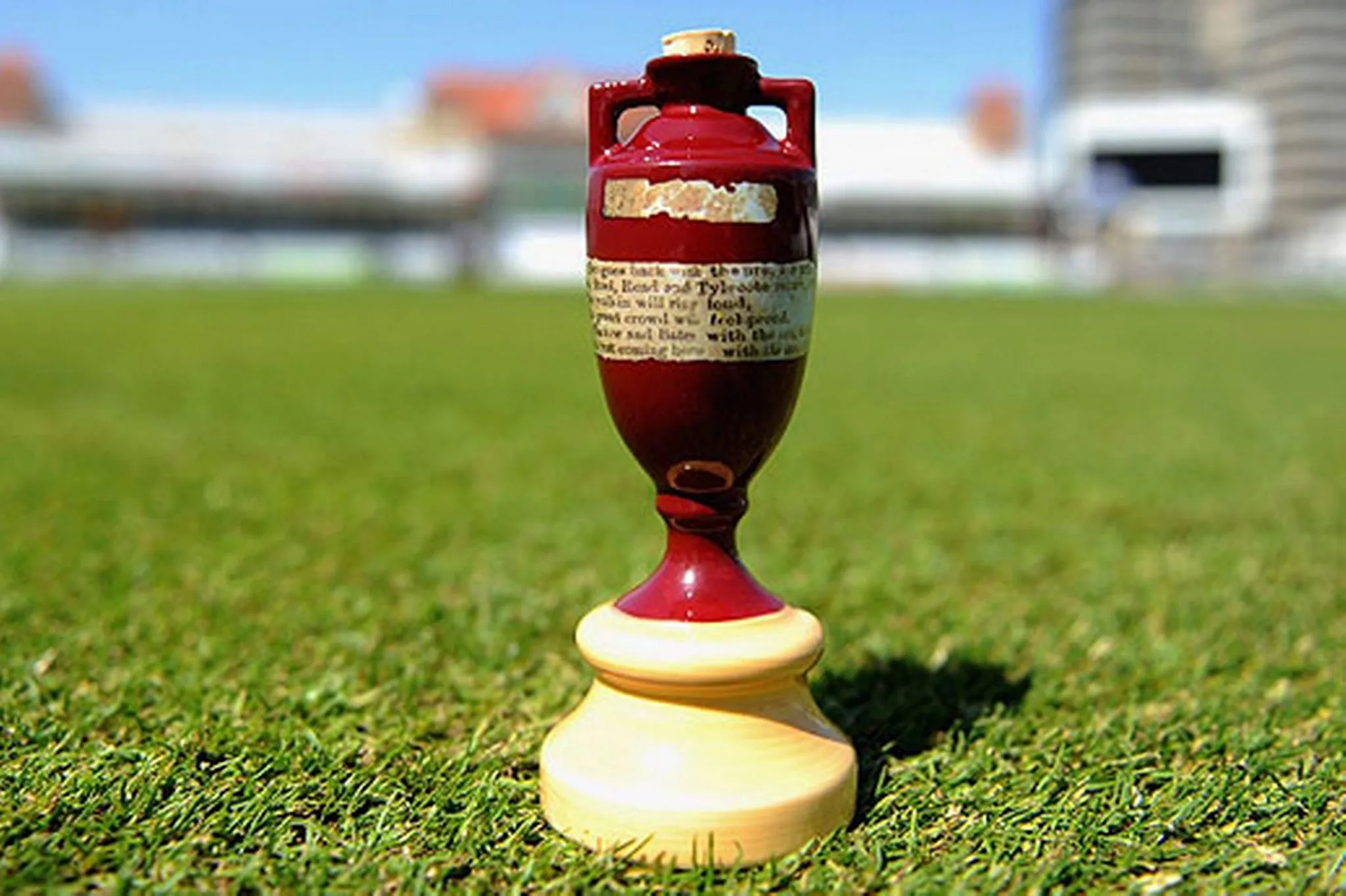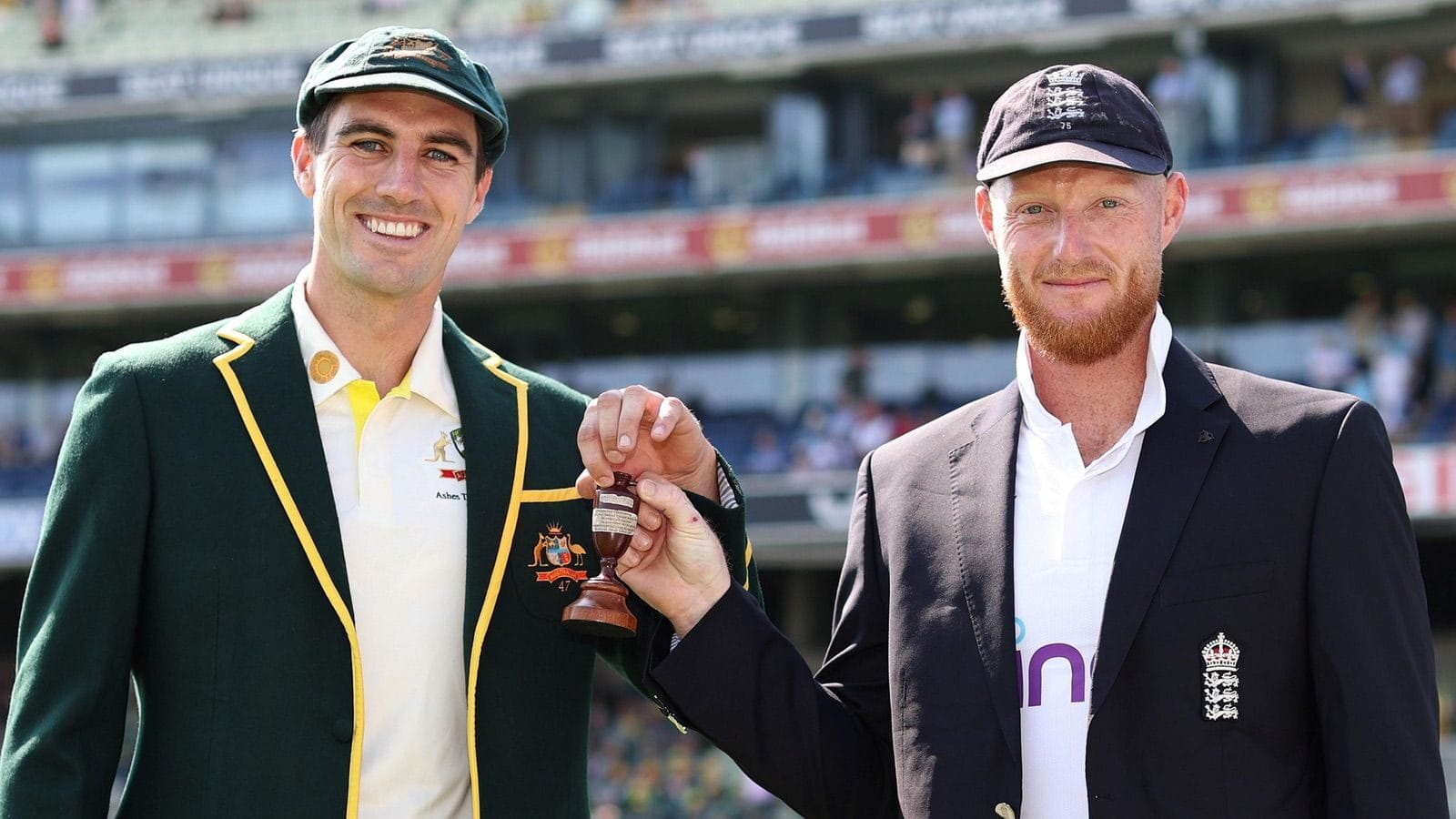The 2023 Ashes was an outstanding series, providing the sort of ever-changing narrative that limited-overs cricket simply cannot deliver. Four of the Tests resulted in finishes which are regarded as close – margins of 50 runs or fewer, or four wickets or fewer. The only game which was not close was the rain-ruined draw at Old Trafford, in which England were utterly dominant.
If things had gone slightly differently in the first two matches, won by Australia, it is not inconceivable that England could have won the series 5-0. Australia could never have been 5-0 victors. Whatever might have happened in those two lost days in Manchester, Australia were not going to win.
But, of course, Australia did win those first two games. The first game, at Edgbaston, was a real thriller with lots of memorable aspects, not least the first ball, cracked through the covers for four by Zak Crawley. Joe Root made a magnificent century, cut off in its prime, one might say, by Ben Stokes’ surprising declaration on the first evening. It is impossible to say, as some have argued, that that was the cause of England’s defeat. A more likely cause was their negligent batting in the second innings, which meant that Australia were left with a gettable target rather than an unassailable one. Of course the fact that a target is gettable does not mean you will get it. Australia’s success was due to a second resolute performance from Usman Khawaja, who had made a stylish century in the first innings, and a brilliant captain’s innings from Pat Cummins, sturdily supported by Nathan Lyon. Lyon’s eight wickets in the match made all the difference in the end (though some might say the critical issue was England’s decision to make Jonny Bairstow the wicketkeeper).
England should never have lost at Edgbaston. Australia were arguably – perhaps unarguably – the better side at Lord’s, where England threw away a potentially commanding position by a further display of negligent batting, in the second afternoon. By that time Lyon had hobbled off the field, not to bowl again in the series, but England failed to capitalise. But it was principally the final day that had the enthralling ebb and flow of Edgbaston, and, although Australia won, there are really only two things for which the game will be remembered: Alex Carey’s stumping of Bairstow; and Stokes’s truly astonishing second innings, which almost carried the day.
Now two down with three to play, Stokes said that this was the ideal position for his team, who had, after all, beaten New Zealand and Pakistan three-nil. “ Yeah, right,” was the general response. Australia were World Test Champions. Could England’s method, pioneered by Stokes and red ball coach Brendon McCullum, really prevail against them?
It seems the answer is, well, possibly. In the 140-odd years of The Ashes, only once has a side won a series after going two-nil down. That was Don Bradman’s Australians in 1936-37, when Bradman himself made scores of 270, 212 and 169 in the last three Tests. So it is a rather special achievement. Stokes’ men won the third Test at Headingley and the fifth at The Oval. Like Edgbaston and Lord’s these were intriguingly close contests. Old Trafford was different. England were utterly dominant; and then it rained.
So people will say England deserved to win three-two. Well, maybe they did, maybe they didn’t. Old Trafford was hardly the first Ashes Test to be affected by the weather. These things happen. The nonsensical suggestion that there should be a reserve day for Tests can be speedily disposed of. Many people will say two-two was the right result and that England were the authors of whatever misfortune they suffered.
It seems difficult to deny that England were the better side in the last three Tests. The selection of Mark Wood and Chris Woakes had a huge impact. Wood’s first spell in the first Innings at Headingley, when he reached 96 mph and knocked over the adhesive Khawaja, made a lasting impression. It felt as though Woakes, England’s Player of the Series after not having appeared in a Test since the dire West Indies series of 2022, was a revelation, but of course that wasn’t the case. He simply did what he always does, at least in England; he just did it even better than usual. And his batting, especially at Headingley, was as significant as his bowling (so was Wood’s in that game).
Australia, for their part, had to do without the highly experienced Lyon, which clearly affected the balance of the side, though Todd Murphy made useful contributions with bat and ball. England, though were hardly unaffected by injuries. Jack Leach, England’s leading Test wicket-taker in 2022, did not play a single game. Stokes, arguably the world’s premier all-rounder, was effectively playing only as a batter. But every cloud has a silver lining. Leach’s replacement, the veteran Moeen Ali, struggled with a bad spinning finger at Edgbaston, but took valuable wickets at Headingley and subsequently made valuable runs at number three, replacing Ollie Pope, also injured.
When Cameron Green fell by the wayside, Mitchell Marsh, who by his own account was basically in England for a holiday and had not played a red-ball match for months, if not years, came into the side as a batting all-rounder and, at Headingley, played what was arguably the best innings of the series, a blistering session-long century.
England really are re-writing the rules of Test cricket, and it seems churlish, if not outright daft, for supporters to criticise them for ignoring the tenets of “real” Test cricket. One only has to compare Rory Burns and Haseeb Hameed, the original opening pair in Australia in 2021-22, with Crawley and Ben Duckett in this series. It wasn’t just the booming drives and slashing cuts; it was the intent and especially the running. Cummins and the Australian brains trust were frequently at a loss as to how to respond. Dot balls acquired a weird rarity value.
This was all down to Stokes and McCullum. Woakes was rightly England’s player of the series, but Stokes’ overall influence marks him out as England’s greatest Test captain, certainly since Michael Vaughan and arguably Mike Brearley.
Some will say England often had the better of the conditions. Maybe, but they often did not make good use of them, as on the first two days at Lord’s. Australia will have a permanent moan about the ball change at The Oval, which did seem to ha e a dramatic impact on the course of the match- though not an immediate one, as Steve Smith and Travis Head seemed very comfortable initially.
Australia provided the highest run-scorer, Khawaja, and the highest wicket-taker, Mitchell Starc. But only two Australians averaged 40 or more with the bat, Marsh, who only played three Tests, and Khawaja; five Englishmen averaged 40 or more, and all of them played in all five Tests. The Australian bowler with the best average, 25, was Murphy, who took seven wickets. Starc took his 23 at 27 apiece; Lyon with nine wickets, averaged 29, and nobody else averaged under 30. Lyon, with 4.00, had the lowest economy rate. Starc’s was 4.86. Scott Boland, the scourge of England in 2021-22, took three wickets at 115 apiece, with an economy rate of 4.91. No Australian bowled more than eight maidens in the entire series. There were times when England simply plundered the bowling, especially Crawley, Bairstow and Harry Brook (Brook has already hit more sixes in Tests than David Gower). The carnage at Old Trafford prompted Andy Zaltsman to comment that Australia’s bowling to Crawley and Brook was like Jane Austen pitching to Babe Ruth.
For England, Woakes took 19 wickets at 18 apiece, and Wood 14 at 20; four other bowlers took their wickets at 30 or below. The highest economy rate was 3.59, for Josh Tongue who played one Test. Four England bowlers bowled 22 maidens or more; James Anderson bowled 37, Stuart Broad 33.
England also provided the two most surprising individual averages: Crawley, with 480 runs at an average of 53 (and a strike rate of 88 – that wasn’t surprising, that was normal); and Anderson, with five wickets at an average of 85 (and an economy rate of 2.7 – that also wasn’t surprising).
At the start of the series the assumption was that the faster bowlers of both sides would rotate, if only because the matches were packed into such a ludicrously tight schedule (because of the World Test Championship final at one end and the Hundred at the other). Generally that is what happened but there were two exceptions. Cummins, the Australian captain, appeared in all six of his country’s Tests, though both his captaincy and his bowling seemed a little frazzled by the time the teams got to Old Trafford; he averaged 37 in the series. And for England, Broad, 37 in June, appeared in all five Tests, and bowled incisively throughout. In the course of the series he took his 600th Test wicket, becoming only the second fast bowler in Test history to reach that landmark, the first being Anderson, and then he took effective ownership of the closing stages of the final Test at The Oval by announcing his retirement from all cricket on the penultimate day. In an almost calculatingly dramatic finale that somehow encapsulated his extraordinary career, Broad hit the final ball he faced for six, and with the last ball he bowled took the wicket that squared the series. Anderson, who turned 41 during that game, must be wondering whether he missed a trick.
Is this England side good enough to end the losing streak in Australia, where England have not won a match since 2010-11? Broad and Ali will obviously not be there when they tour next, in 2025-26, and it is inconceivable that Anderson, Woakes or Wood will be touring then. The critical question is, will Stokes go? He will be 34. If he plays only Test cricket and the odd franchise match in the meantime, it should be possible. In the shorter term “Bazball” has another frontier to conquer, India, in early 2024. That should be really fascinating.





6 comments
Rory Miller
A couple more stats for you, Bill.
Byes conceded: England (Bairstow) 82, Australia (Carey) 44
Innings in which keeper did not concede any byes: 4 for Carey, 1 for Bairstow.
Innings in which keeper conceded >10 byes: 5 for Bairstow, 1 for Carey
It’s not just catches and stumpings taken and missed that are important in close matches.
You can tell I used to keep wicket …
Peter Stitch Hutton
Well written, thanks.
Malcolm Merry
Agree that Wood made a big impact but don’t think he took 144 wickets!
Derek
Thank you Malcolm; I’ve changed it to 14! Derek (ed)
Piers Pottinger
An extremely lucid assessment from the man in the morgue.
Bruce Freeman
It was the worst of times, it was the best of times. There were enough incidents in the series to keep us frustrated, fired up, resigned and delighted. If the ancient Greeks had played cricket, they wouldn’t have bothered with inexorable tragedy.
Of course we should have won, but the question is can we hone penetrative and resilient fast bowlers and, ideally, two skilful spinners for the next down under tour?